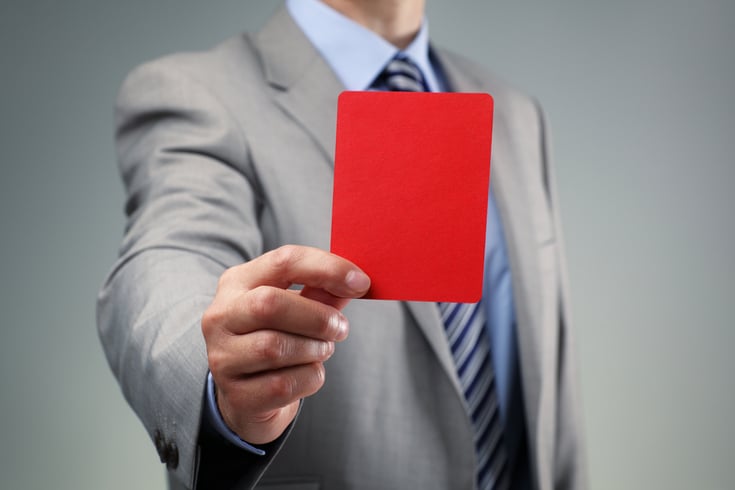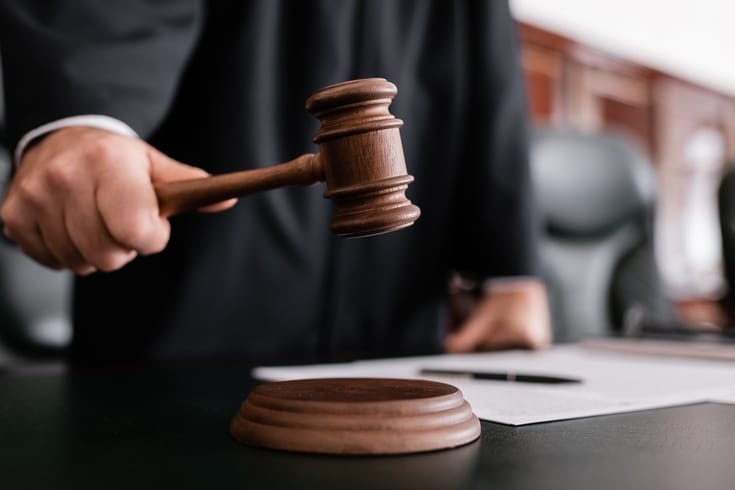What Changed in the 2022 Japanese Criminal Law Amendments? An Attorney Explains the Stricter Penalties for Insult Crimes

Defamation and insult can have serious impacts on their victims. With the increase in defamation and insults on the internet and social media, the Japanese Penal Code was revised in July of 2022, resulting in stricter penalties for the crime of insult. This is an important step in deterring defamation and protecting victims.
In this article, we will explain in detail what specifically has changed due to this revision of the Japanese Penal Code.
Possibility of Imprisonment with the Stricter Penalties for Insult Crimes

Defamation is established when facts are publicly stated, lowering a person’s social reputation (Japanese Penal Code Article 230). The statutory punishment for defamation is imprisonment for up to 3 years or a fine of up to 500,000 yen.
On the other hand, an insult crime is established when a person is publicly insulted without stating facts (Japanese Penal Code Article 231). Before the Penal Code amendment, the statutory punishment was detention or a fine. “Detention” is a punishment where a person is held in a criminal facility for 1 to 30 days (Japanese Penal Code Article 16), and a “fine” is a punishment where a person pays a sum of 1,000 to 10,000 yen (Japanese Penal Code Article 17).
Thus, before the Penal Code amendment, the statutory punishment for insult crimes was significantly lighter than that for defamation.
With the Penal Code amendment in Reiwa 4 (2022), the statutory punishment for insult crimes was raised as follows:
Article 231: A person who publicly insults another person, even without stating facts, shall be punished with imprisonment for up to 1 year or a fine of up to 300,000 yen, or detention or a fine.
e-Gov Law Search|Penal Code
Until now, there has been a difference between defamation and insult crimes in terms of whether they involve stating facts. Because it was considered that the degree of damage to a person’s honor differs, the statutory punishment for defamation was set to be heavier.
However, looking at the actual situation of slanderous acts that damage a person’s honor on the Internet, the opinion has become dominant that it is not appropriate to set such a large difference in statutory punishment depending on whether facts are stated or not.
Therefore, to deal strictly with particularly malicious insults, the statutory punishment for insult crimes has been raised to be equivalent to that for defamation. However, detention and fines are still left as statutory punishments, and it is not intended to punish all insults uniformly heavily, including those with low maliciousness.
Also, only the statutory punishment was raised, and there were no changes to the requirements for establishing an insult crime. Therefore, it does not mean that acts that could not be punished as insult crimes can now be punished.
Changes Accompanying the Increase in the Statutory Penalty for Defamation

As a result of the increase in the statutory penalty, several changes have occurred in the legal treatment of defamation.
Extension of the Statute of Limitations for Prosecution of Defamation to 3 Years
The “statute of limitations for prosecution” is a system where, after a certain period of time has passed since a crime was committed, it becomes impossible to initiate a criminal lawsuit against that crime. The statute of limitations varies depending on the severity of the crime, with more serious crimes having a longer limitation period.
Before the amendment, the punishment for defamation was only detention or a fine, so the statute of limitations was one year (Article 250, Paragraph 2, Item 7 of the Japanese Criminal Procedure Law). With the stricter punishment for defamation, the maximum sentence has become imprisonment for less than one year, and the statute of limitations for defamation has been extended to three years (same item 6).
However, since defamation is a “complaint-based crime”, it cannot be prosecuted unless there is a complaint from the victim of the crime or the like. Complaints cannot be made after six months have passed from the day the offender was identified. It is important to note that this complaint period has not changed before and after the amendment.
Instigators and Accomplices of Defamation are also Subject to Punishment
The person who commits a crime is called the “principal offender”, and “instigation” refers to persuading someone to commit a crime and making them determined to do so, and then having them commit the crime based on that determination. Regarding instigation, it is stipulated that,
Article 61
A person who instigates another to commit a crime shall be punished as a principal offender.
2 The same shall apply to a person who instigates an instigator.
It is stipulated.
Also, aiding and abetting is helping the principal offender to make it easier for them to commit a crime. Regarding aiding and abetting, it is stipulated that,
Article 62
A person who aids and abets a principal offender shall be treated as an accomplice.
2 A person who instigates an accomplice shall be punished as an accomplice.
It is stipulated.
Article 64 of the Criminal Law stipulates that “unless there are special provisions, instigators and accomplices of crimes punishable only by detention or a fine shall not be punished”. Therefore, before the amendment, it was not possible to punish instigators and accomplices of defamation, but after the amendment, this restriction has been removed.
Since it is stipulated that the instigator is punished with the same penalty as the principal offender, the instigator may also be punished within the range of the statutory penalty of “imprisonment for less than one year”, “imprisonment for less than one year”, “a fine of less than 300,000 yen”, “detention for less than 30 days”, and “a fine of less than 10,000 yen”.
On the other hand, accomplices may be punished within the range of half of each, i.e., “imprisonment for less than six months”, “imprisonment for less than six months”, “a fine of less than 150,000 yen”, “detention for less than 15 days”, and “a fine of less than 5,000 yen”.
Changes in Arrest Requirements due to Stricter Punishment for Defamation
Prosecutors, prosecution clerks, or judicial police officers can arrest a suspect when there is a reasonable reason to suspect that the suspect has committed a crime, based on a warrant for arrest issued in advance by a judge.
For crimes punishable by detention or a fine, the suspect can be arrested by a warrant issued by a judge only in cases where “the suspect does not have a fixed residence” or “the suspect does not respond to a summons without a legitimate reason” (Article 199 of the Japanese Criminal Procedure Law).
With the stricter punishment for defamation, imprisonment and imprisonment have been added, and this restriction has been removed. In other words, it can be said that the possibility of being arrested for defamation has greatly increased. The following case is not a case of defamation on the Internet, but it shows that there is a possibility of arrest even for defamation.
The Impact of Raising the Statutory Penalty for Defamation

What kind of impact can we expect as a result of the increase in the statutory penalty for defamation?
Potential Increase in Defamation Complaints
Defamation is a “complaint-based crime,” meaning that it cannot be prosecuted without a complaint. As a result of the stricter punishment for defamation, it is expected that the number of defamation complaints will increase.
Under the previous Penal Code, even if a complaint was filed and defamation was recognized, the punishment was “detention or a fine,” and in reality, most cases resulted in a “fine of about 9,000 yen.”
In fact, if we look at the 30 cases listed in the Ministry of Justice’s “Collection of Defamation Cases” (Distributed at the first meeting of the Criminal Law (Defamation Statutory Penalty) Subcommittee of the Legislative Council) as “cases in which a first-instance judgment or summary order was issued only for defamation in 2020 (Reiwa 2),” four cases resulted in a fine of 9,900 yen and the remaining 26 cases resulted in a fine of 9,000 yen.
With such low penalties, it’s likely that many victims were hesitant to file complaints. With the stricter penalties, victims may be more inclined to file complaints. Furthermore, the stricter penalties may encourage the police and prosecutors to respond more actively to complaints.
Potential Increase in Offenders Agreeing to Settlements
A settlement refers to resolving a dispute through an agreement between the parties involved. It is often used in criminal cases and traffic accidents, where the offender pays compensation, and in return, the victim agrees to conditions such as “not filing a lawsuit” or “not filing or withdrawing a complaint.”
With the stricter penalties for defamation, offenders who previously took the issue lightly, thinking “it’s just defamation anyway,” are expected to be more likely to agree to settlements.
Summary: Consult a Lawyer Regarding Defamation and Insult Crime
In light of recent developments in defamation cases, it is no longer appropriate to maintain a significant difference in statutory penalties between defamation and slander. Therefore, the legal evaluation of defamation as a crime that should be strictly dealt with has been demonstrated. This has led to an increase in statutory penalties for defamation, equivalent to those for slander, in order to deter and strictly deal with malicious defamation.
With the stricter penalties for defamation, the statute of limitations for public prosecution and the penalties for instigation and complicity have also changed. In particular, the extension of the statute of limitations from one year to three years is expected to increase the number of cases where it is possible to file a complaint after going through the time-consuming process of identifying the poster in cases of online defamation. We recommend consulting a lawyer regarding defamation on the Internet.
Introduction to Our Firm’s Measures
Monolith Law Office is a legal office with extensive experience in both IT, particularly the internet, and law. In recent years, information related to reputational damage and defamation spread on the internet has been causing serious harm as a “digital tattoo”. Our firm provides solutions for dealing with these “digital tattoos”.
Category: General Corporate





















